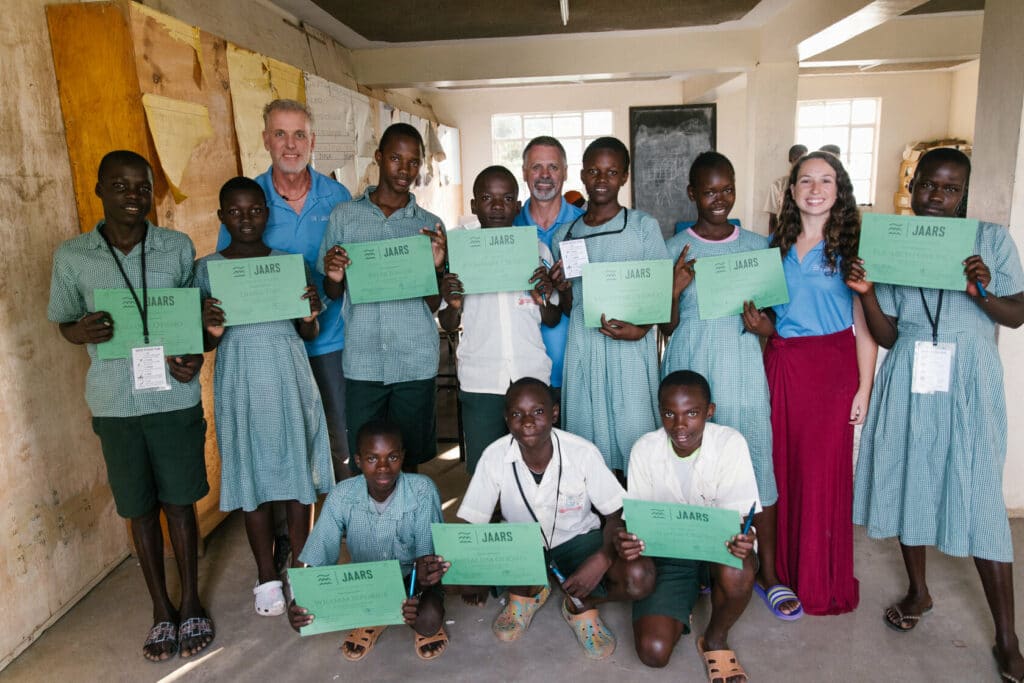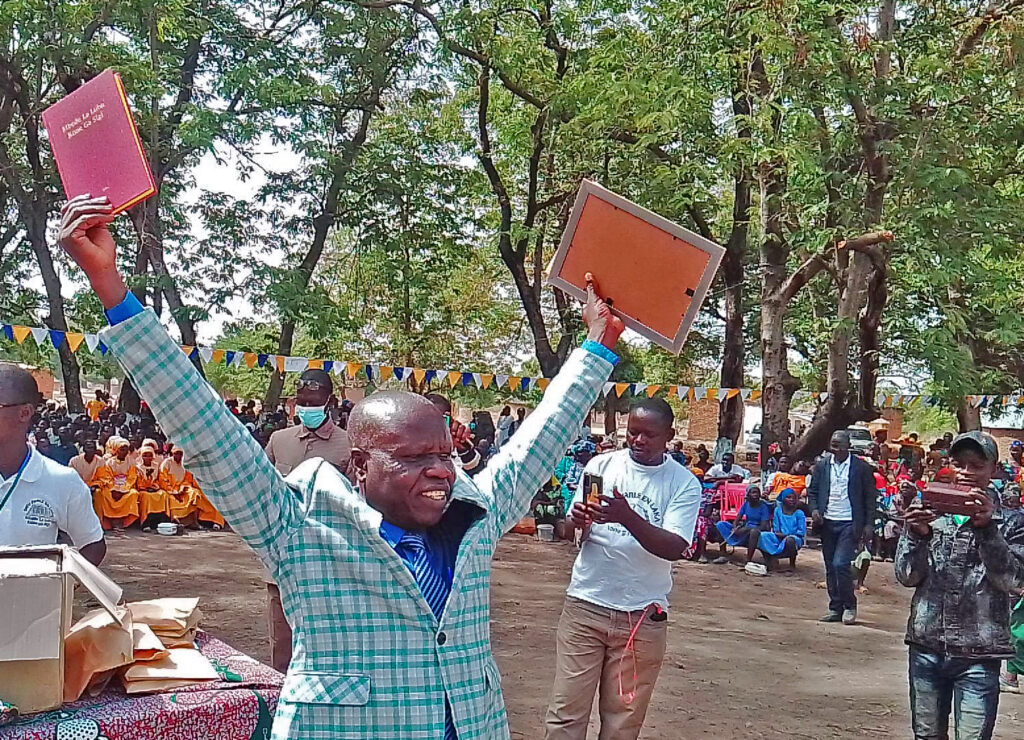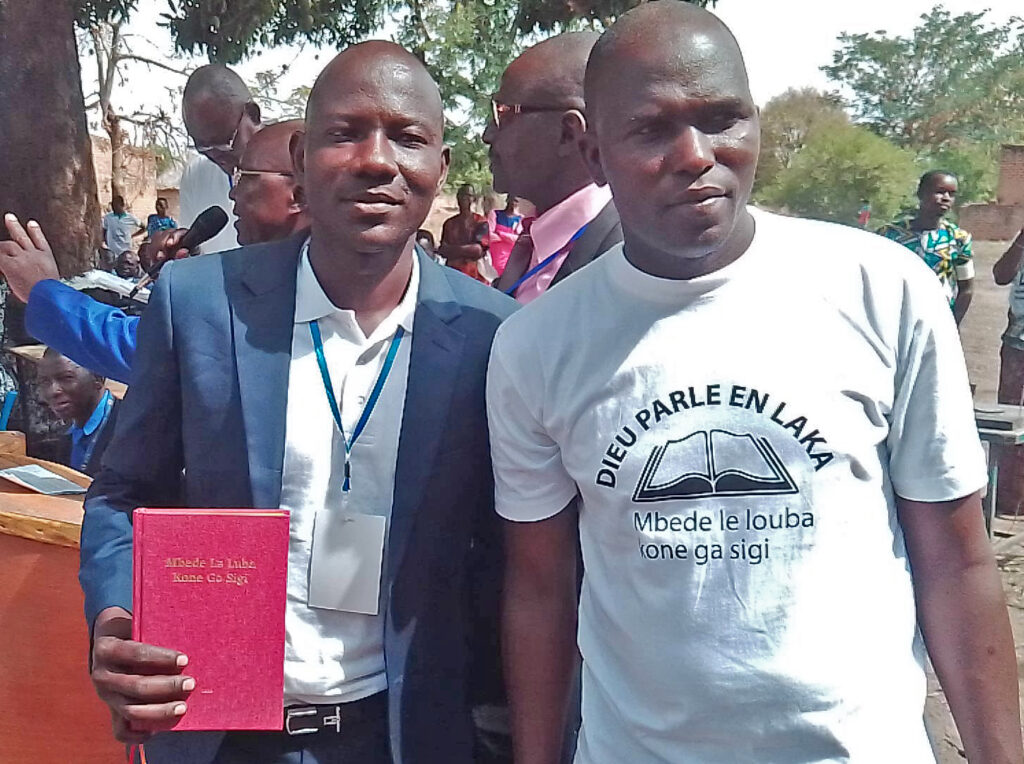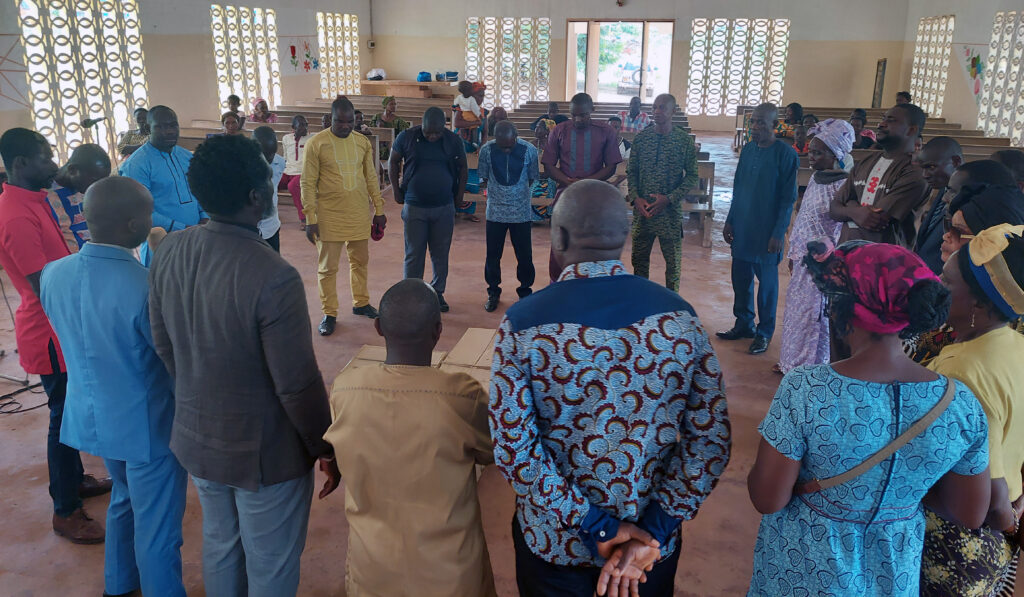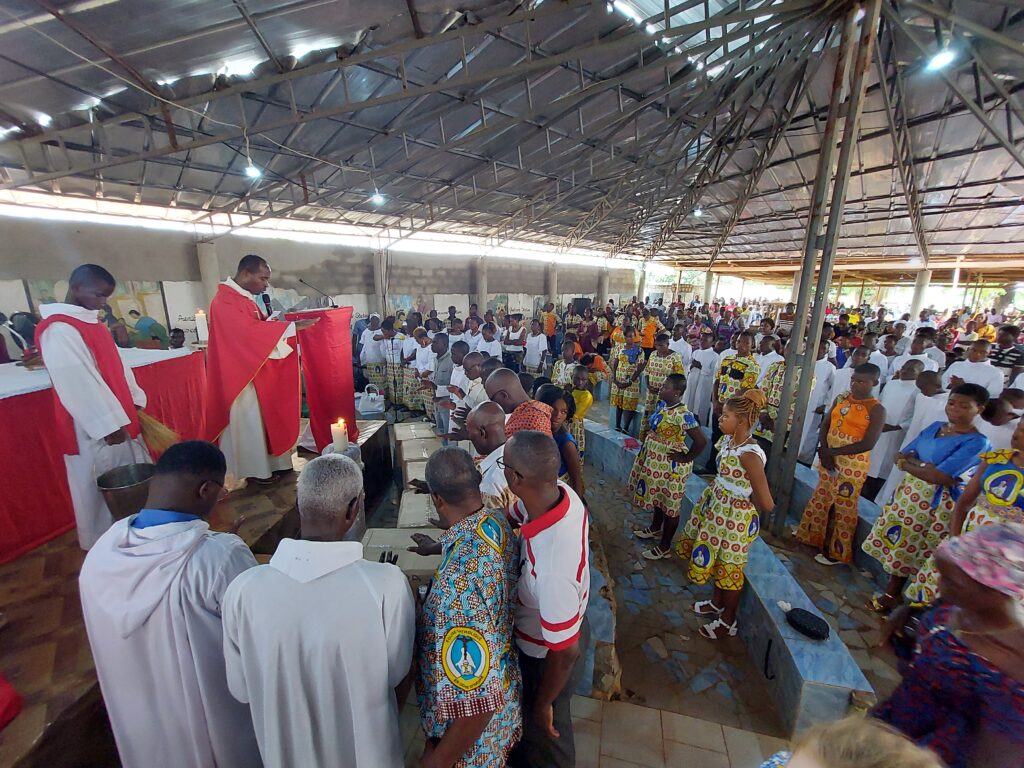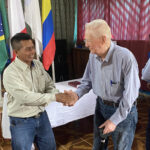Imagine living and attending school on an island. Anytime you compete with other schools in sports or other events, you must travel across a lake as large as some of the American Great Lakes in a rickety wooden boat without life jackets.
Gethsemane Gardens Christian Centre (GGCC) is on Kenya’s Mfangano Island in Lake Victoria. The boarding school was established following the HIV/AIDS crisis when the founders received God’s call to serve vulnerable and orphaned children. By offering love, nourishment, and a Christian education, they are growing faithful leaders who will carry God’s message throughout the world.
Anytime the students and administrators of GGCC want to travel to the mainland for competitions, field trips, or anything else, they must travel on commercial boats. These are often overcrowded, and sometimes the students will have to use the boats at night to return to the school.
It had been more than a decade since JAARS had conducted maritime safety training with the school, so the JAARS maritime staff—Tim McIntosh, Tony Hinton, and JAARS Maritime Services Fellow Olivia Curry—traveled last year to train a core group of students and staff members. This group would then go on to train the rest of the school. “Their intent,” Tim said, “is to take that training into the communities as well. They want to train them with these safety and survival techniques and use it for evangelism.”
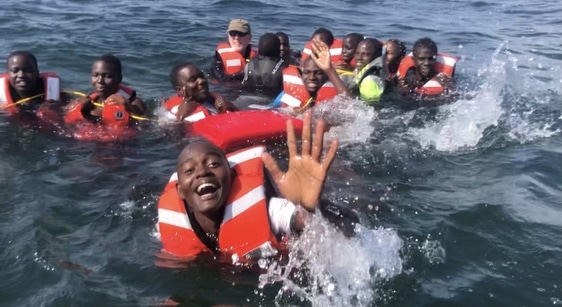
The week that the JAARS maritime team was there, a commercial boat was so overloaded that it sank, and 7 of the 19 people aboard died. This incident struck home with the principal of the GGCC high school. He told the maritime team, “We are going to take this training to our people.”
During their time on the island, the team worked with a group of five teachers and administrators and 20 students from the Scout program. The maritime team conducted three water-safety training sessions with the group all day on a Saturday, the next afternoon, and a couple of evenings after school.
On the Saturday morning, amid pouring rain, the students walked a mile in mud from the school to the guesthouse where the team stayed and taught.
The students and instructors learned some important skills: the proper way to wear a personal flotation device (PFD)*, which is the same as a life jacket, and how to use signal mirrors and other safety equipment in the survival bags that the team planned to leave with them.
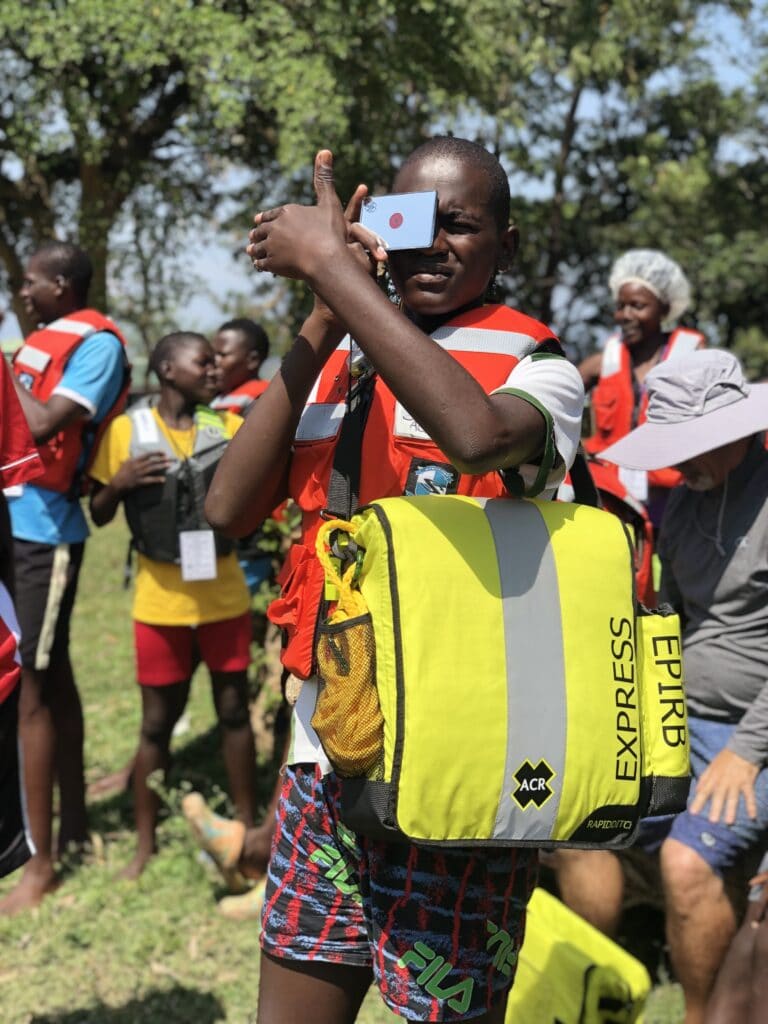
Before learning how to properly wear PFDs, Olivia, Tony and Tim put a pile of them on the floor among the students—a few less than there were students and different sizes. Each student had to grab one from the middle and put it on with their eyes closed while holding their breath! The team wanted them to experience the disorientation that comes from having to put on a PFD while struggling to stay afloat in the water.“ It creates some anxiety for some people, which is the point,” Tim explained. “There’s a real challenge to it.”
This module also shows how important it is to be wearing a PFD at all times, not just when the boat is sinking. By then it’s often too late.
After the students and administrators got comfortable with the PFDs and other equipment on land, the team took them out in a boat on the lake to practice in the water. Castro Otieno, the vice principal of the primary school, had never put on a life jacket. After the practice, he said: “Now I know the importance of a life jacket. Today, when we went into the water, and I was jumping into the water with the life jacket, I was thinking, ‘I’m going to go down, down, and down into the lake.’ But when I felt my body coming up with the life jacket, I was like, ‘This is the best thing that we need to have around.’”
Please pray that the GGCC students and administrators continue to use the knowledge they possess and that God keeps them safe—all for the glory of God!
